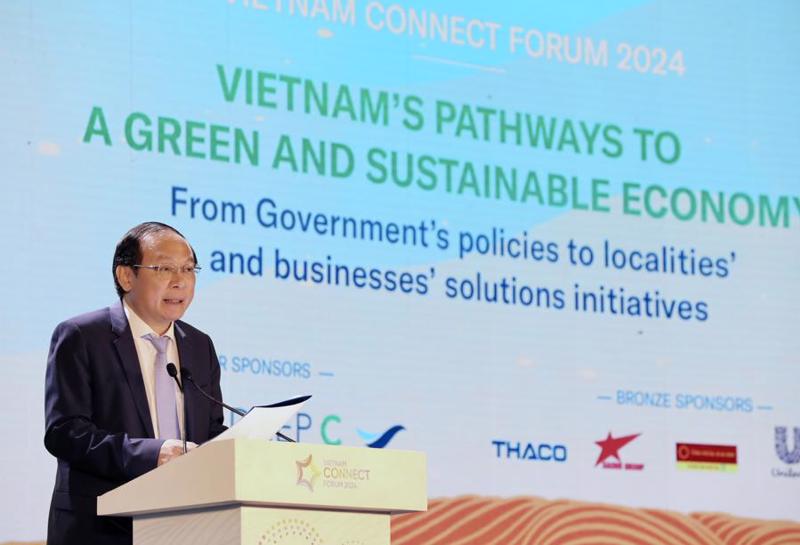Vietnam is at a crossroads. The country's booming economy has lifted millions from poverty in recent decades, but the energy-intensive growth model it relied on risks undermining its future prosperity.
Amid mounting climate pressures and shifting trade winds, "greening" Vietnam's path is both an environmental imperative and an economic one, officials say.
"This is not just about responsibility, but opportunity," says Le Cong Thanh, Deputy Minister of Natural Resources and Environment. He told the 4th Vietnam Connect Forum 2024 that green transformation could open "the door to innovation, new resources, and new markets."
The forum, held in the port city of Hai Phong, brought together leaders from Vietnam's government, local authorities, and foreign partners to chart the country's green economic course. The focus was clear: Vietnam needs to urgently align its ambitious environmental targets with robust on-the-ground action and secure huge investments to make it happen.
Ambition on Paper
Vietnam's commitments are impressive. Its updated Nationally Determined Contribution (NDC) pledges ambitious emission cuts, and it aims to reach net zero by 2050.
To support this, the government has reworked its national energy plan, prioritizing renewable sources like solar and wind. There is also growing emphasis on energy efficiency and resource management across economic sectors.
Reality Check
But good intentions on paper don't guarantee a smooth transition. Mr. Thanh acknowledges the scale of the challenge: "This will require vast financial and technological resources."
Vietnam is actively seeking international partnerships to help bridge the gap. Its Just Energy Transition Partnership (JETP) with developed nations aims to channel investment into clean energy infrastructure and upskilling the workforce, helping transition from reliance on fossil fuels.
The SME Factor
Transforming an economy, however, requires more than large-scale energy projects. Vietnam's vast network of small and medium-sized enterprises (SMEs) are the backbone of its manufacturing sector.
Integrating them into the green shift is crucial, but they often lack the capital and know-how to make fundamental changes, Mr. said, adding that policymakers are exploring how to provide tailored support.
The Looming Carbon Border
A further driver of Vietnam's green push is looming: the prospect of carbon border taxes by key export partners like the European Union. The country's manufacturing sector could face significant trade headwinds unless it can decarbonize production and supply chains. This adds further urgency to Vietnam modernizing its industries.
Vietnam's Moment?
The forum underscored the complex balancing act Vietnam faces. It can't sacrifice growth, given its development needs, but it also can't ignore the climate crisis and the economic risks that come with inaction.
If Vietnam can effectively harness investment and execute its green vision, it may gain a competitive edge. But with a price tag in the hundreds of billions of dollars and ingrained practices to change, the country faces a tough road ahead.









 Google translate
Google translate